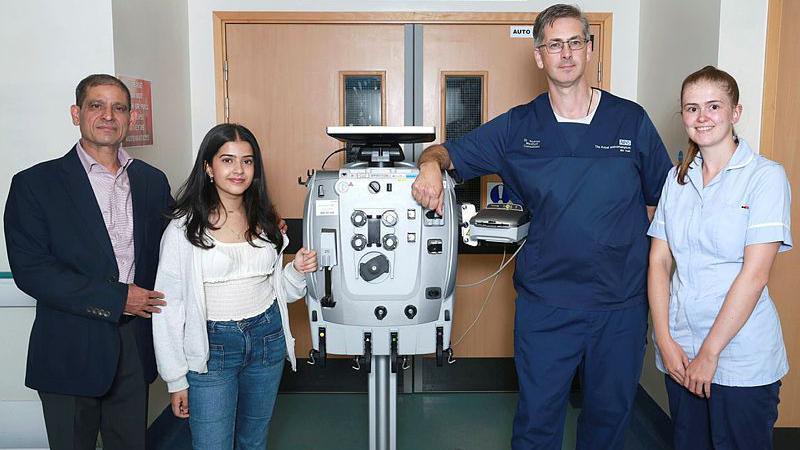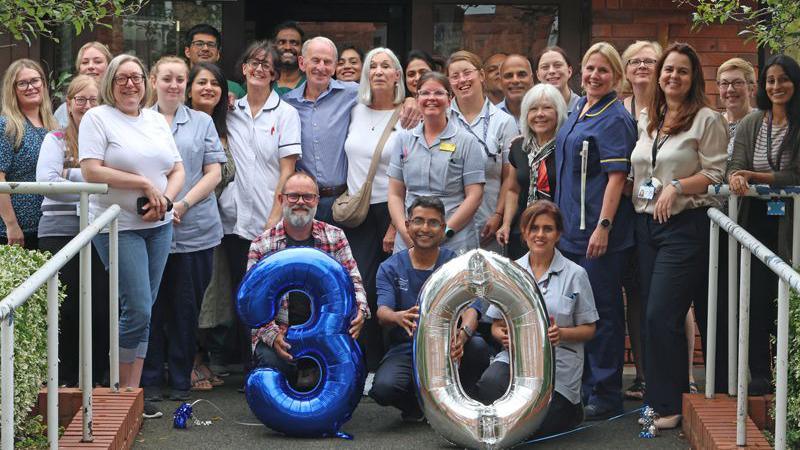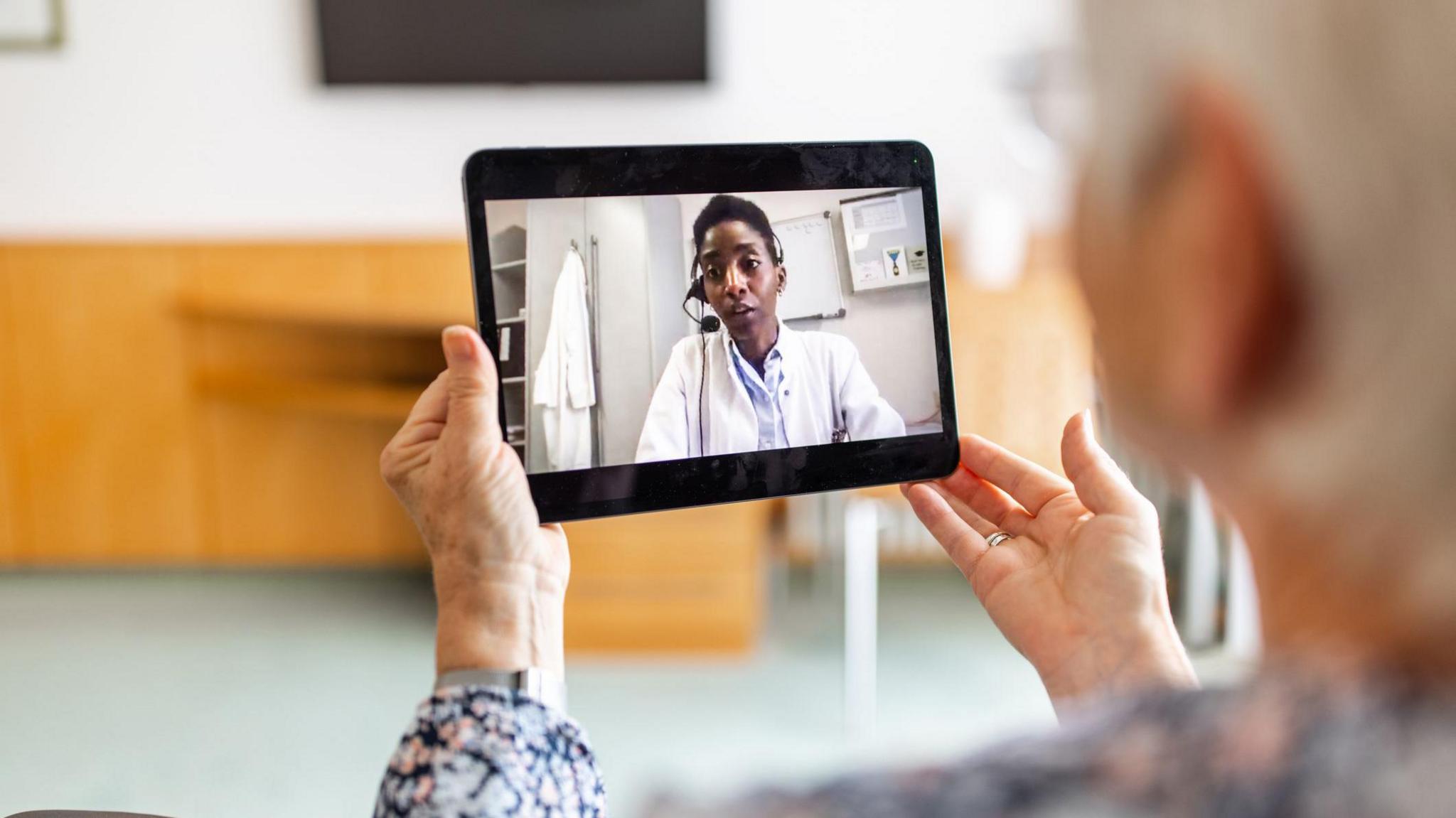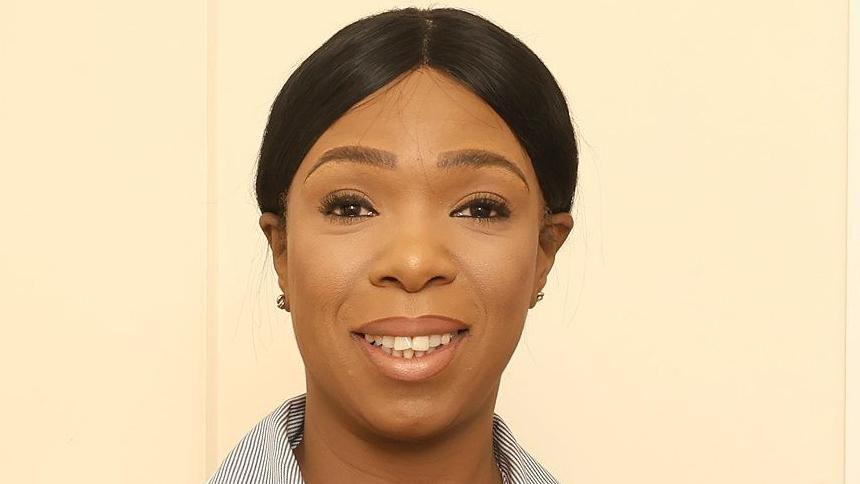Teen's 56-day hospital stay to fight rare disease

Deeksha Bali, second from left, was in hospital for 56 days
- Published
A teenager was the first patient from the West Midlands in 10 years to be diagnosed with a rare auto-immune disease that saw her placed in a coma.
Deeksha Bali, from Smethwick, started suffering from seizures and was left unable to move or breathe properly while taking her A-level exams earlier this year.
The 18-year-old was later diagnosed with Autoimmune GFAP Astrocytopathy and was put in a medically-induced coma at New Cross Hospital in Wolverhampton.
After 56 days of care, which included six and a half plasma exchanges and 14 days on a ventilator, Ms Bali recovered and was discharged in August - a quick turnaround relative to the illness's normal progression.
She said she did not remember much after the exam period in which she was taken ill.
“Going from being very mobile and independent to being tired and relying on others is challenging, but I’m getting stronger all the time,” she explained.
Ms Bali was diagnosed at Birmingham City Hospital on 14 June.
The disease involves the immune system attacking a protein of the nervous system called Glial Fibrillary Acidic Protein (GFAP).
According to Royal Wolverhampton NHS Trust (RWT) which subsequently treated her, the case was the first one diagnosed in the region in the last decade and there had only been two other reported cases in the UK during that time.
Ms Bali was transferred to the trust's New Cross Hospital on 7 July, where she was placed in a coma, put on a ventilator and had a tracheotomy device fitted.
She was also treated with steroids and had six and a half plasma exchanges, which helped reduce inflammation on the brain and prevented further damage.
'What's the point, dad?'
Ms Bali’s father Sunil Bali said it was the worst experience of their lives.
“After the second round of plasma, Deeksha came round after sedation, couldn’t move, and said ‘what’s the point, dad'?”
She spent 14 days hooked up to a ventilator before she was transferred to a recovery ward, where she remained until she was discharged on 9 August.
Andy Macduff, a consultant at RWT, described her recovery as “dramatic”, adding that people with her condition were usually sick for a long time.
Ms Bali said her care at New Cross Hospital had been “excellent” and that the doctors and nurses were always with her.
She is now preparing to study biochemistry at the University of Birmingham.
Get in touch
Tell us which stories we should cover in Wolverhampton
Follow BBC Wolverhampton & Black Country on BBC Sounds, Facebook, external, X, external and Instagram, external.
Related topics
- Published20 September 2024

- Published8 September 2024

- Published29 August 2024
